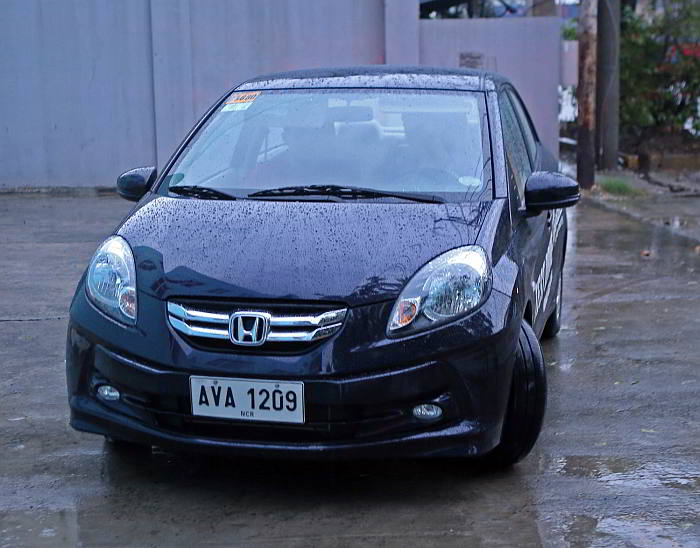
When it comes to entry-level cars, not much can be expected.
They’re in the market for practical reasons like giving people with a tight budget a chance to own a brand new, fuel-efficient vehicle that’s easy to maintain.
It’s also because of practical reasons that these cars are smaller, have lesser-powered engines and are almost stripped bare.
But things have changed lately.
These entry-level subcompacts are getting more decent. In fact, they look better, drive better and perform better.
Take for example the Honda Brio Amaze, which Cebu Daily News recently tested over a weekend through Honda Cars Cebu Inc.
The Brio Amaze is a slightly bigger version of the Brio hatchback, which we also tested almost a year ago.
The main difference is that the Amaze has a trunk that looks small from the outside but is actually spacious inside.
The trunk space is one of many things that stands out in this small car that can actually change the way people look at entry-level vehicles.
Why can we say that?
For one, we believe this vehicle has a lot of potential in the local market that craves for stylish fuel-efficient vehicles.
Proof of that is that we received a lot of positive comments from friends on social media when we posted its photo online. Even passersby in our parking lot think it’s a pretty car for something that small.
Don’t get us wrong when we say small. Another thing we liked about this car is that it’s got a spacious interior that is dominantly beige in color, making it more classy that its competitors, which inlude the Mitsubishi Mirage G4 and the Suzuki Swift DZire.
Space is not an issue as Honda maintained its “Man Maximum, Machine Minimum” philosophy here.
Hard plastics dominate the interior but the fit and finish are mostly top-notch with the entire dashboard looking like those of a compact sedan. Highlights of the dash include the amber lighting on the gauges, the circular air conditioning vents and the 2-din touch screen head unit that works double as an audio unit and GPS navigation display.
Seating is also decent with the front bucket-type seats comfortable enough for the average Filipino build even with a thin backrest. This was done for a reason as this design gives rear passengers more leg space.
The improved rear legroom makes seating at the back easier although long trips would probably be a bit uncomfortable because of the short seat cushion.
Still, that’s not enough to put down the Brio Amaze.
The most interesting part about this subcompact is its performance.
While most vehicles in this class rely on three-cylinder engines, the Brio Amaze is powered by the tried-and-tested 1.3-liter 4-cylinder i-VTEC engine that was bolted on to the previous Jazz/City generation.
This engine produces healthy numbers: 100 horsepower and 127 newton meter of torque.
Attached to a tiny frame, this engine-body combination can be exciting for real car enthusiasts, especially on open road.
Despite its bigger engine, the Brio Amaze still produces conservative numbers in fuel efficiency. We drove it aggressively and got an average of 11.5 kilometers to a liter then took it easy on the highway to produce an average of 18 km/liter.
With all these features topped with its affordability, we believe this small car can surely impress those, who are in the hunt for a practical yet pretty entry-level vehicle.